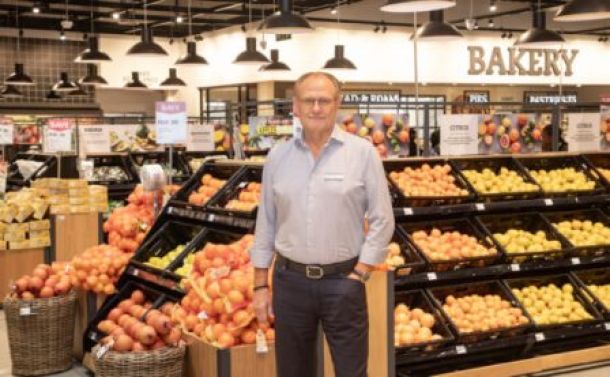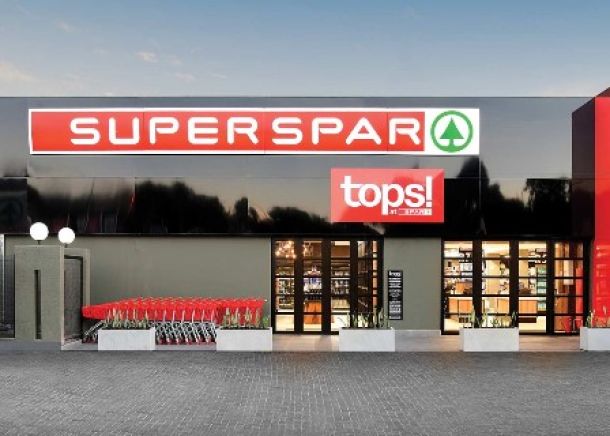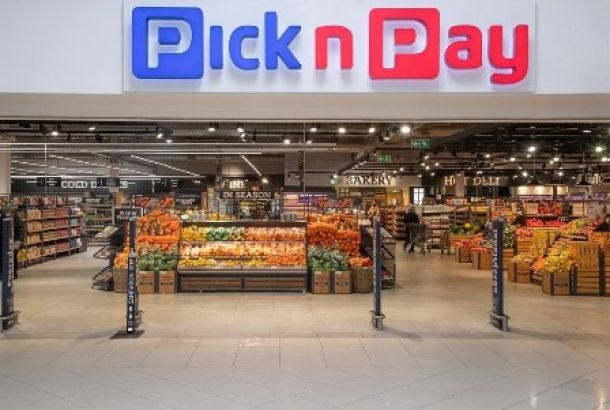Resilient and fit for the future
Pick n Pay today (20/10/2020) published its interim results for the six months ended 30 August 2020.
The result was delivered almost entirely in the unprecedented conditions of Covid-19. The Group successfully pursued two primary goals over the period: feeding the nation in a safe and reliable way as an essential provider of food and groceries, and delivering on our long-term plan to build a leaner, more agile and more modern business, attuned to the needs of our customers.
Group sales and earnings were inevitably negatively impacted by Covid-19 and the measures taken by governments to contain it.
Trading restrictions affected up to 20% of the Group’s revenue at different stages of the nationwide lockdown, and sales were further impacted by reduced trading hours, limits on the number of customers in stores, and temporary store closures. These restrictions resulted in an estimated R2.8 billion in lost sales over the period.
Against this background, Group turnover increased 2.6% year-on-year, with like-for-like growth of 1.0%. Turnover from South African operations increased 3.4%, with like-for-like growth of 1.7%.
However, good growth was achieved in core retail sales. Food, groceries and general merchandise (excluding liquor, clothing and tobacco) grew 8.7% year-on-year (6.4% like-for-like), with 9.9% growth in South Africa (7.6% like-for-like). Core food and grocery sales in South Africa grew 4.2% in volume.
Group earnings were impacted by additional measures taken to protect staff and customers during the lockdown, resulting in R150 million in additional operating costs. A further R100 million was fully expensed in the six months relating to the Group’s voluntary severance programme (VSP), initiated at the beginning of the financial year. These costs will be recouped through lower employee costs in the second half, and will result in leaner operating costs in the longer term.
As a result, comparable headline earnings per share (excluding hyper-inflation in Zimbabwe) were down 56.3% year-on-year, and down 38.6% excluding the once-off costs of the VSP.
Gross profit increased 1.0% to R8.6 billion, with a 0.2% point reduction in the gross profit margin to 19.6% of turnover. This reflected the impact of trading restrictions on a number of higher margin categories, mitigated by efficiency savings and progress on centralisation in the Group’s supply chain.
Highlights included:
· Rapid adoption and maintenance of stringent hygiene and safety requirements, protecting colleagues and customers and ensuring continuous business operations throughout the period
· Consistently high levels of on-shelf availability despite Covid-19 disruptions
· Selling price inflation restricted to 3.4% for the period, well below CPI Food
· A market-leading Boxer performance against a strong base
· Strong market share gains in key clothing categories and the launch of the Group’s online clothing platform
· Resolute cost-discipline, bolstered by Project Future, on track to deliver R1 billion in savings over two years. Group trading expenses increased only 4.8% year-on-year (3.6% excluding VSP costs), with like-for-like expense growth of 3.2%. Growth in trading expenses, excluding Covid costs and VSP costs, contained below inflation at just 1.8%
· 42 new stores opened despite lockdown disruption
· Store footprint reaches 1,945 stores, with decisive action taken to improve estate profitability
· Smart Shopper loyalty participation up to 70% of sales, with seven million active customers. Redemptions grew 50%
· Over 550 new or redesigned own brand products in Pick n Pay, with Pick n Pay and Boxer own brand penetration now close to 25% of participating categories.
· Expansion of South Africa’s leading online grocery channel by introducing on-demand and Click-and-Collect services to meet significantly increased demand during the lockdown
· Strong liquidity and low gearing anchored by tight working capital management and a keen focus on critical capital and operational spend
· R80m raised through Feed the Nation for South Africa’s most vulnerable citizens
Operations in the Rest of Africa were also impacted by Covid-19 restrictions, but remain profitable and contributed R2 billion of segmental revenue, down 10.3% on last year, or 7.3% when removing the impact of currency weakness. Zimbabwe recorded a solid trading and earnings performance under extremely challenging economic conditions, growing its market share. The country continued to cope with severe currency weakness and escalating levels of hyperinflation. Zambia experienced difficult economic and trading conditions, with a weakening currency driving up the cost of imports and fuelling cost inflation. It nonetheless remains a solid, sustainable business.
Commenting on the result, CEO Richard Brasher said:
“I am very proud of how the Pick n Pay and Boxer teams have performed over the most difficult trading period any of us can remember. Through skill, determination and a dedication to customers, we have kept our stores open, safe, and working. Our teams on the frontline have been magnificent, and it has been an outstanding response to an unprecedented challenge.
“Although the pandemic inevitably impacted our sales and profit, we have delivered a resilient result, with many reasons to be positive about the future.”
“Customers had a very difficult six months, with unemployment reaching record levels and many families suffering sharp falls in income. We responded by getting even tighter on our costs, investing R500m in the price on everyday essentials, deepening our promotions and providing even better offers to Smart Shoppers. Our internal inflation was held below CPI Food, and our investment delivered market share gains in edibles, perishables and fresh categories.
“During lockdown, customers inevitably spent more time at home, and more time cooking, baking and snacking. We put more emphasis into our own brand, with participation now close to 25% in Pick n Pay and Boxer, and very pleasing double digit growth in own brand edible groceries, baby, toiletries, canned, and household goods.
“We also responded well to the surge in demand for online shopping. Pick n Pay Online is the largest online grocery offer in sub-Saharan Africa. We were also the first retailer to launch an on-demand app via partnership with Bottles, converting it from an online liquor platform into a grocery app in just four days. Pick n Pay Online now covers more than 150 stores nationwide. Our franchisee partners joined us in introducing new Click-and-Collect services for their customers. Overall we recorded sales growth of more than 100% in online, and a 200% growth in overall unique active customers. With an exceptional effort from our online team and logistics partners, we achieved an on-time delivery rate of 98%.
“Critically, we stayed true to our values through the crisis. Our Feed the Nation campaign has donated some 20 million meals, raising over R80 million. This has been an incredible effort.
“Now it is time to look ahead. Project Future has positioned us very well for a better future, with savings over the next two years set at R1 billion. We are a more agile, innovative, productive, efficient business, approaching the future with confidence.”
News Category
- International retailers
- On the move
- Awards and achievements
- Legislation
- Wine and liquor
- Africa
- Going green
- Supplier news
- Research tools
- Retailer trading results
- Supply chain
- Innovation and technology
- Economic factors
- Crime and security
- Store Openings
- Marketing and Promotions
- Social Responsibility
- Brand Press Office
Related Articles

Pick n Pay plunges 16% on JSE as stock adjusts ...

SPAR suffering from a hangover

Pain for Pick n Pay

Pick n Pay disaster


